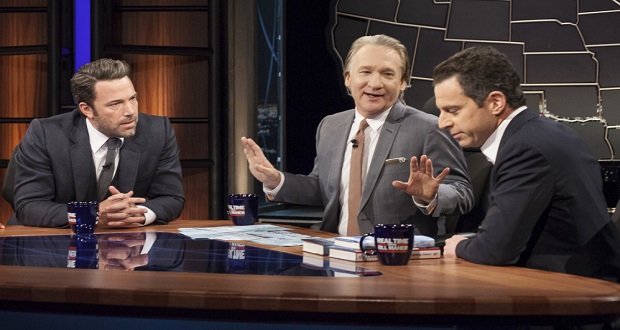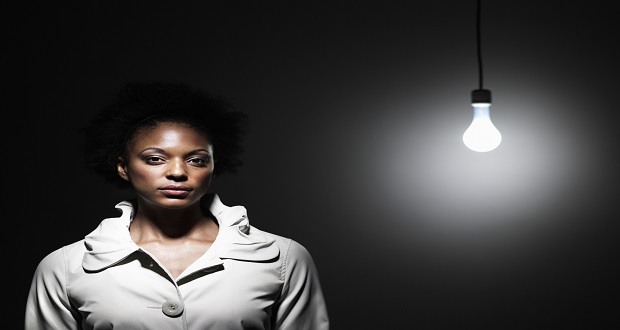
Muslims are scary people whose lives revolve around threatening those of others. No they’re not. Yes they are. No they’re not. Yes they are. No they’re…
You don’t even need to watch the video of Real Time with Bill Maher to know what went down between the host and his guests last Friday. I just summed up their sandbox spat for you.
Bill Maher argued that liberals fail to stand up for their ideals when discussing Islam, essentially claiming that political correctness around religion trumps the supposed reality that many—even most—Muslims have fanatical tendencies. “Liberals need to stand up for liberal principles,” said Maher. “Liberal principles like freedom of speech, freedom to practice any religion you want without fear of violence, freedom to leave a religion, equality for women, equality for minorities including homosexuals—these are liberal principles that liberals applaud for, but then when you say in the Muslim world this is what’s lacking, then they get upset.”
Maher also insisted that radical Islam is “the only religion that acts like the mafia, that will f…ing kill you if you say the wrong thing, draw the wrong picture, or write the wrong book.”
Guest Ben Affleck shot back that such criticisms were “gross” and “racist.”
Meanwhile, atheist author Sam Harris agreed with Maher, claiming that the “crucial point of confusion is that we have been sold this meme of Islamophobia where every criticism of the doctrine of Islam gets conflated with bigotry towards Muslims as people. That is intellectually ridiculous.”
Harris added, “We have to be able to criticize bad ideas. And Islam is the mother lode of bad ideas.”
“Jesus!” exclaimed Affleck. “It’s an ugly thing to say.”
And so flew the ping pong ball.
Leave it to New York Times columnist Nicholas Kristof to temper the debate. “The picture you’re painting is to some extent true,” he said to Maher and Harris, “but it is hugely incomplete. It is certain that plenty of fanatics and jihadis are Muslim, but [so are] the people who are standing up to them.” He then cited several Muslim crusaders for human rights, including
Malala Yousafzai, the Pakistani 12-year-old shot in the head for advocating for women’s education.
(Former Republican National Committee Chairman Michael Steele was there for the fun, too, but the few words he was able to squeeze into the dispute were fairly forgettable.)
In general, I’m a huge fan of Maher. An atheist myself, I found Religulous, Maher’s documentary on the silliness of religions, pretty amazing. Still, are most Muslims out to behead nonbelievers? Of course not. Are most people who behead other people Muslims? Sadly, I think they are. But even if the answers were reversed, how should they guide our personal actions and interactions with Muslims?
They shouldn’t at all. It seems that in their heated debate, Maher, Harris, and Affleck were talking past each other to prove or disprove certain stereotypes. Frankly, I do suspect that Islamic fanaticism is a graver threat in the world than similar zealotry in other faiths. But here’s the thing: I do not think of this when I meet a Muslim person—because I am smart enough not to use group membership to judge individuals.
Ultimately, I think Maher and Affleck were probably both right, but were too focused on proving their position to realize it. It’s OK to condemn a religion’s tenets. But it’s not OK to hold an entire faith against a single follower, who may have conflicting views. So yes, Maher may be correct when he makes the case that liberals should point out the shortcomings of Islam (as they should of any faith). And Affleck is also spot-on when he says that we shouldn’t typecast the world’s many Muslims. In the end, though, while you don’t have to respect Islam, you do have to respect most Muslims.


















